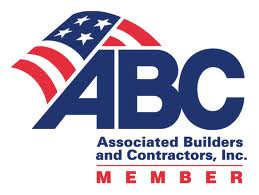Stellar, an architecture, engineering, construction and mechanical services firm, has earned the Associated Builders and Contractors' (ABC) highest national safety designation for 2011-the Safety Training Evaluation Process (STEP) Diamond-level award. Stellar was the only contractor in the Florida First Coast Chapter (with more than 140 member companies), and one of only four in Florida, to earn Diamond status.
There are six levels of STEP achievement: Participant, Bronze, Silver, Gold, Platinum, and Diamond. Member companies that achieve Diamond status-a new level established just last year-are an elite group. More than 2,100 ABC contractor members applied for the STEP program in 2011, with just 94 members achieving STEP Diamond status.
"Our most important goal is to send our employees and subcontractors home safe to their families, every day," said Philip Hinrichs, Stellar's Vice President of Risk Management. "That's why we develop a job-specific safety plan for each and every project and perform safety audits on a regular basis. We're proud to see these efforts recognized."
Stellar has achieved STEP certification 16 years in a row. Now widely accepted as the construction industry's standard measure of safety performance, the STEP awards were established in 1989 to evaluate and improve safety practices and recognize outstanding safety efforts. The award criteria include two industry benchmarks-the experience modification rate (EMR), which is applied to workers' compensation premiums, and the Occupational Safety and Health Administration's (OSHA) recordable injury and illness incidence rates (measured by the number of incidents per 100 employees per year).
STEP Diamond recipients must have long-term records of exceptional safety performance, with EMRs at or below 0.7 (a significantly lower rate than the national average of 1.0) and average incidence rates at least 50 percent below construction industry averages. EMRs, developed by the insurance industry, are based on comparisons of firms doing similar types of work. Lower rates, meaning that fewer or less-severe accidents occurred, result in lower insurance costs. BD+C
Related Stories
Adaptive Reuse | Oct 22, 2024
Adaptive reuse project transforms 1840s-era mill building into rental housing
A recently opened multifamily property in Lawrence, Mass., is an adaptive reuse of an 1840s-era mill building. Stone Mill Lofts is one of the first all-electric mixed-income multifamily properties in Massachusetts. The all-electric building meets ambitious modern energy codes and stringent National Park Service historic preservation guidelines.
MFPRO+ News | Oct 22, 2024
Project financing tempers robust demand for multifamily housing
AEC Giants with multifamily practices report that the sector has been struggling over the past year, despite the high demand for housing, especially affordable products.
Performing Arts Centers | Oct 21, 2024
The New Jersey Performing Arts Center breaks ground on $336 million redevelopment of its 12-acre campus
In Newark, N.J., the New Jersey Performing Arts Center (NJPAC) has broken grown on the three-year, $336 million redevelopment of its 12-acre campus. The project will provide downtown Newark 350 mixed-income residential units, along with shops, restaurants, outdoor gathering spaces, and an education and community center with professional rehearsal spaces.
Office Buildings | Oct 21, 2024
3 surprises impacting the return to the office
This blog series exploring Gensler's Workplace Survey shows the top three surprises uncovered in the return to the office.
Healthcare Facilities | Oct 18, 2024
7 design lessons for future-proofing academic medical centers
HOK’s Paul Strohm and Scott Rawlings and Indiana University Health’s Jim Mladucky share strategies for planning and designing academic medical centers that remain impactful for generations to come.
Sports and Recreational Facilities | Oct 17, 2024
In the NIL era, colleges and universities are stepping up their sports facilities game
NIL policies have raised expectations among student-athletes about the quality of sports training and performing facilities, in ways that present new opportunities for AEC firms.
Codes and Standards | Oct 17, 2024
Austin, Texas, adopts AI-driven building permit software
After a successful pilot program, Austin has adopted AI-driven building permit software to speed up the building permitting process.
Resiliency | Oct 17, 2024
U.S. is reducing floodplain development in most areas
The perception that the U.S. has not been able to curb development in flood-prone areas is mostly inaccurate, according to new research from climate adaptation experts. A national survey of floodplain development between 2001 and 2019 found that fewer structures were built in floodplains than might be expected if cities were building at random.
Seismic Design | Oct 17, 2024
Calif. governor signs limited extension to hospital seismic retrofit mandate
Some California hospitals will have three additional years to comply with the state’s seismic retrofit mandate, after Gov. Gavin Newsom signed a bill extending the 2030 deadline.
MFPRO+ News | Oct 16, 2024
One-third of young adults say hurricanes like Helene and Milton will impact where they choose to live
Nearly one-third of U.S. residents between 18 and 34 years old say they are reconsidering where they want to move after seeing the damage wrought by Hurricane Helene, according to a Redfin report. About 15% of those over age 35 echoed their younger cohort’s sentiment.

















